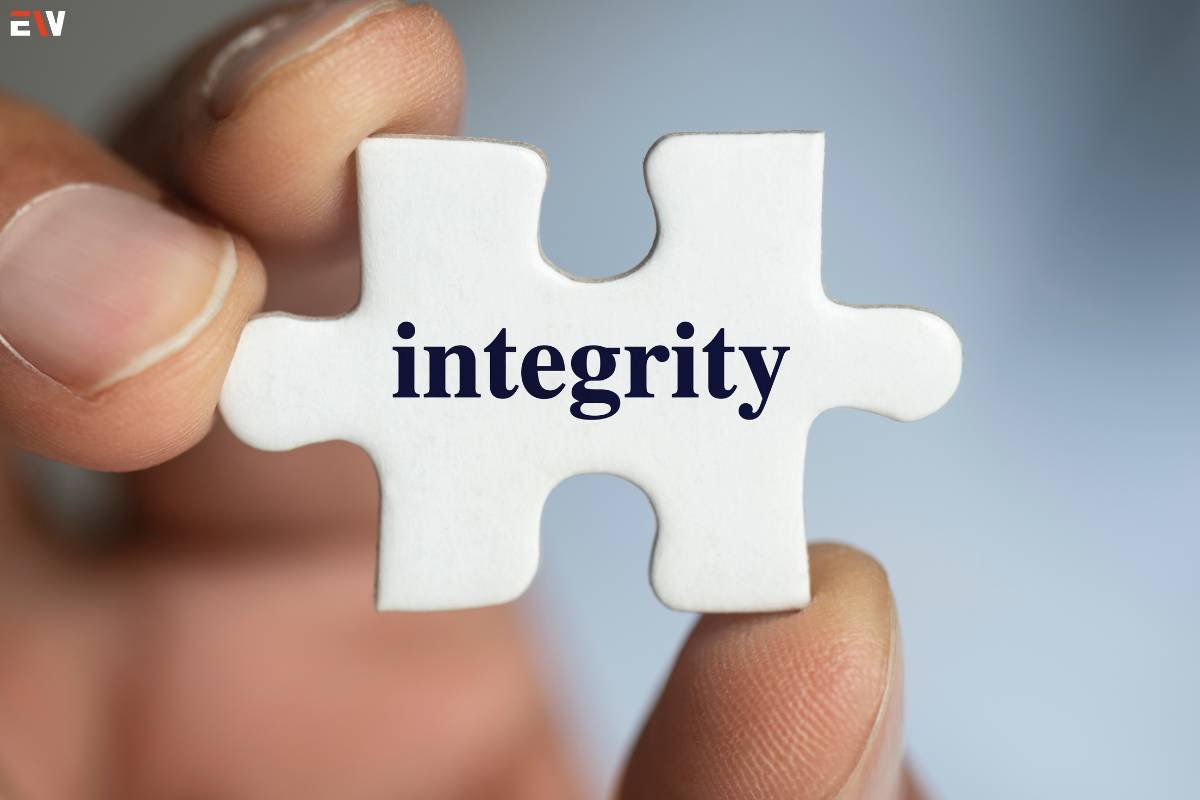Leadership is not confined to a title or a position; it’s a set of qualities that inspire and influence others to achieve a common goal. Whether you’re a manager, an entrepreneur, or an aspiring leader, understanding and developing essential leadership qualities can empower you to drive positive change, foster collaboration, and excel in your personal and professional life. In this article, we’ll explore 18 key leadership qualities that distinguish great leaders, providing you with insights and strategies to become an effective and influential leader.
1. Vision
A clear and compelling vision is the foundation of effective leadership. Great leaders can see the bigger picture and articulate a vision that inspires and motivates their team. They provide a sense of purpose, direction, and a shared goal for their organization.
Strategies to Develop Vision:
- Set aside time for reflection to identify your long-term goals and aspirations.
- Communicate your vision clearly and consistently to your team.
- Encourage team members to share their vision and align it with the organization’s goals.
2. Empathy
Empathy is the ability to understand and share the feelings of others. It’s a cornerstone of effective leadership as it fosters trust, strong relationships, and collaboration. Leaders who show empathy are more approachable and better equipped to address the needs of their team members.
Strategies to Develop Empathy:
- Actively listen to your team members, seeking to understand their perspectives and concerns.
- Put yourself in others’ shoes and consider their feelings and motivations.
- Offer support and recognition when team members face challenges or achieve milestones.
3. Communication
Effective communication is one of the fundamental leadership qualities. Great leaders can convey their ideas and messages clearly and persuasively. They also emphasize the importance of active listening, ensuring that they understand and respond to the needs and feedback of their team.
Strategies to Enhance Communication:
- Practice clear and concise verbal and written communication.
- Encourage an open and transparent dialogue within your team.
- Regularly seek feedback and encourage open communication channels.
4. Integrity

Integrity ranks high on the list of non-negotiable leadership qualities. It means acting with honesty, transparency, and ethics in all your interactions. Leaders with integrity gain the trust and respect of their team and set an example for ethical behavior.
Strategies to Uphold Integrity:
- Always act in alignment with your values and principles.
- Be transparent about your decisions and their reasoning.
- Hold yourself accountable for your actions and admit mistakes when necessary.
5. Decisiveness
Leaders often face situations that require making decisions, sometimes under pressure. Decisiveness is the ability to evaluate information, weigh the pros and cons, and make timely and well-informed choices. Effective leaders do not shy away from difficult decisions.
Strategies to Develop Decisiveness:
- Gather all relevant information before making a decision.
- Trust your judgment and be prepared to make choices, even when the outcome is uncertain.
- Learn from the outcomes of your decisions, whether they are successful or not.
6. Adaptability
In a rapidly changing world, adaptability is one of the crucial leadership qualities a leader can possess. Leaders who can navigate change, embrace innovation, and guide their teams through transitions exhibit strong adaptability.
Strategies to Foster Adaptability:
- Embrace change as an opportunity for growth and improvement.
- Encourage a culture of continuous learning and flexibility within your team.
- Provide the necessary support and resources for your team to adapt to new challenges.
7. Accountability

Accountability means taking responsibility for your actions and the outcomes of your decisions. It is a quality that builds trust within a team and reinforces a sense of ownership.
Strategies to Embrace Accountability:
- Acknowledge and learn from your mistakes, and take corrective action.
- Hold your team members accountable for their responsibilities and provide constructive feedback.
- Create a culture of accountability where individuals take ownership of their work.
8. Inspiration
Inspiration is the ability to motivate and empower others to achieve their best. Great leaders use their words, actions, and passion to ignite enthusiasm, dedication, and a sense of purpose within their team.
Strategies to Inspire Others:
- Share your passion and commitment to the team’s goals.
- Recognize and celebrate the achievements and contributions of team members.
- Encourage creativity, innovation, and self-expression within your team.
9. Team Building
Effective leaders are not just individual performers; they are team builders. They recognize the strengths and weaknesses of their team members and create a collaborative and high-performing team.
Strategies to Build Strong Teams:
- Assess the skills and talents of team members and delegate responsibilities accordingly.
- Foster a sense of camaraderie and collaboration within your team.
- Promote diversity and inclusion to harness different perspectives and strengths.
10. Mentorship
One of the vital leadership qualities is Mentorship. Great leaders take the time to mentor and guide their team members, offering support, feedback, and opportunities for growth.
Strategies for Effective Mentorship:
- Identify the strengths and areas for the development of your team members.
- Provide guidance, constructive feedback, and professional development opportunities.
- Be a source of inspiration and a role model for your team.
11. Patience
Patience is among the leadership qualities that leaders often need, especially in complex and challenging situations. It involves remaining calm and composed, knowing that success often requires time and persistence.
Strategies to Cultivate Patience:
- Practice mindfulness and stress management techniques.
- Focus on the long-term vision and be patient with the pace of progress.
- Support team members in their development, understanding that growth takes time.
12. Confidence
Confidence in one’s abilities and decisions is a quality that instills trust within a team. Leaders who exude self-assuredness, even in the face of uncertainty, inspire confidence in others.
Strategies to Boost Confidence:
- Continuously build your knowledge and skills to bolster your self-confidence.
- Seek feedback and recognition from team members and peers.
- Project self-assuredness when communicating your vision and decisions.
13. Delegation
Delegation is the art of entrusting tasks and responsibilities to team members. Effective leadership qualities ensure that tasks get delegated effectively, allowing the team to take ownership and develop their skills.
Strategies for Effective Delegation:
- Assign tasks based on the strengths and abilities of team members.
- Provide clear instructions and expectations for delegated tasks.
- Offer guidance and support as needed while allowing autonomy.
14. Recognition
Recognizing and celebrating the achievements and contributions of team members is one of the fundamental leadership qualities. It fosters a sense of appreciation and motivation among individuals.
Strategies for Effective Recognition:
- Acknowledge and reward achievements and contributions within your team.
- Provide specific and sincere feedback to team members.
- Create a culture of recognition and appreciation.
15. Honesty
Honesty is a fundamental quality of a good leader. Leaders who are truthful and transparent in their communication create an atmosphere of trust and integrity within the team.
Strategies to Uphold Honesty:
- Be straightforward and open in your communication with team members.
- Address challenges and conflicts with honesty and respect.
- Set a standard of truthfulness and ethical behavior within your organization.
16. Commitment
Leaders are deeply committed to the organization’s goals and the development of their team. This commitment inspires dedication and a sense of purpose among team members.
Strategies for Demonstrating Commitment:
- Invest time and effort into the achievement of the organization’s goals.
- Encourage team members by demonstrating your unwavering commitment.
- Align your personal and professional values with the mission of your organization.
17. Strategic Thinking
Strategic thinking involves analyzing situations and considering long-term implications. It means planning for the future and making decisions that align with your vision.
Strategies for Developing Strategic Thinking:
- Set aside time for strategic planning and reflection.
- Continuously assess the evolving landscape and adjust your strategies accordingly.
- Engage in scenario planning and consider the long-term impacts of your decisions.
18. Continuous Learning

A commitment to continuous learning is a hallmark of effective leaders. They seek opportunities to learn, grow, and adapt, staying current and relevant in a changing world.
Strategies for Lifelong Learning:
- Invest in your personal and professional development through courses, workshops, and reading.
- Encourage a culture of learning within your team, where knowledge and skills are continuously upgraded.
- Embrace new technologies, trends, and approaches that are relevant to your industry.
Conclusion
Leadership is not a destination but a journey of self-discovery, growth, and continuous improvement. The qualities of a good leader encompass a diverse range of attributes, skills, and actions. By cultivating these qualities and investing in your personal and professional development, you can aspire to become an exceptional leader who inspires, motivates, and guides your team to achieve greatness.










